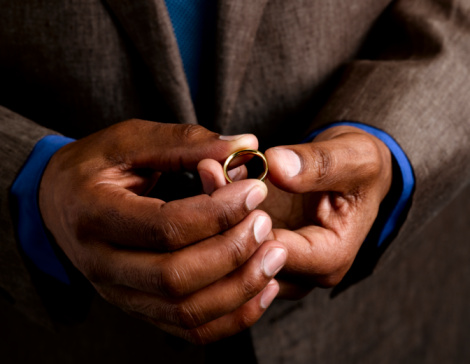
Married, separated, or divorced alike, it’s hard not to feel anxious about the upcoming holiday season. Whether you love it or are dreading it, the 2015 holiday season is just around the corner. Maybe you are feeling that there is no way you are going to get through this year with your emotions in check. You are not alone. Whether you are feeling anger, sadness, grief, frustration, anxiety, etc. it is important to feel balance this time of year. How do you do that, especially if you are still grieving from your divorce?
We can’t (and shouldn’t) try to banish these emotions. However, we can be intentional and generate positive emotions to help redistribute the weight of these negative emotions. So how can you do that even if you are feeling completely down this time of year? We’ve blogged previously about ways of helping others and paying it forward as ways to help ourselves emotionally, and ‘tis the season of a vast array of opportunities to help others, but here are some additional ideas for creating positive emotions in your world:
Finding Nature: Nature has an amazing way of soothing us without words. Sit down and make a list of places nearby to visit nature. Maybe some are as easy as stepping out your front door and others maybe involve a little bit of a drive. Even that drive to get their can prove to be therapeutic. Nature heals and being in nature, or even viewing scenes of nature, has been shown to reduces anger, fear, and stress.
Exercise: It’s no secret that exercise can help to balance your emotions – whether it’s running, walking, yoga, or even a team sport, find what you love and carve time out of your schedule to do it! When you exercise, the body releases endorphins that minimize the sensation of pain. These endorphins elevate your mood and reduce feelings of anxiety. You will also feel better when you exercise and because you are healthier, you will have more energy, and feel more balanced.
Distractions: Distractions can be a positive solution for balancing emotions. Although you might be thinking that distractions will just bury your feelings to come out later on, healthy distractions provide positive emotions that will help you to release some of the negative feelings. Make a list of both healthy and unhealthy distractions that you tend to gravitate towards. While an unhealthy distraction like having drinks with friends seems like a good idea in the moment, a healthy distraction like Saturday morning coffee with a friend will prove to be better for your emotions.
Focus on the Positive: Right now you might be thinking, “what positive?” At Daisy Camp we love the quote, “There is always, ALWAYS, something to be thankful for.” Maybe you’ve found journaling a helpful process for you through your divorce, which is great, but if you read through it, it may bring on raw and deep negative emotions, so start a separate gratitude journal. Make lists of what you are thankful for (past, present, and future), and try to add to that list daily. When you are feeling down – read that journal.
Wishing you strength and positivity as you balance your emotions this holiday season. Remember that, “Nothing can dim the light that shines from within.” Maya Angelou. You will make it through this.
 Did you know that there is a National Financial Literacy Month?? Well, there is! The powers that be have selected April to be the Financial Literacy Month. Why April rather than July probably goes to the fact that so many people are acutely aware of their financial situation as they write out a check to the IRS. So, what is financial literacy and how does one become more financially literate?
Financial literacy is about taking control of your finances by fully understanding the impact of your spending, saving and debt obligations on your financial well-being. It is about making well-informed purchasing decisions and understanding the difference between wants and needs. A financial literate individual understands the importance of saving for the long-term. They are committed to the budget that they created, which includes saving for specific large purchases, as well as longer-term financial goals such as a comfortable retirement.
Financial literacy involves understanding the pros and cons of debt and being proactive about managing one’s debt obligations. A financial literate person knows the importance of maintaining a good credit score and gets a copy of their free credit report annually at www.annualcreditreport.com. Financial literacy is about recognizing when you have a problem managing your debt and getting assistance to help you manage the situation.
Financial literacy is also about communicating openly with your significant other about financial matters. It is about teaching your children good financial habits such as saving for big purchases, starting a retirement account early and not getting in over one’s head in debt.
So, now that you know what financial literacy is, go to www.financialliteracymonth.com to see what tools and information they have to help you be more financially literate.
Did you know that there is a National Financial Literacy Month?? Well, there is! The powers that be have selected April to be the Financial Literacy Month. Why April rather than July probably goes to the fact that so many people are acutely aware of their financial situation as they write out a check to the IRS. So, what is financial literacy and how does one become more financially literate?
Financial literacy is about taking control of your finances by fully understanding the impact of your spending, saving and debt obligations on your financial well-being. It is about making well-informed purchasing decisions and understanding the difference between wants and needs. A financial literate individual understands the importance of saving for the long-term. They are committed to the budget that they created, which includes saving for specific large purchases, as well as longer-term financial goals such as a comfortable retirement.
Financial literacy involves understanding the pros and cons of debt and being proactive about managing one’s debt obligations. A financial literate person knows the importance of maintaining a good credit score and gets a copy of their free credit report annually at www.annualcreditreport.com. Financial literacy is about recognizing when you have a problem managing your debt and getting assistance to help you manage the situation.
Financial literacy is also about communicating openly with your significant other about financial matters. It is about teaching your children good financial habits such as saving for big purchases, starting a retirement account early and not getting in over one’s head in debt.
So, now that you know what financial literacy is, go to www.financialliteracymonth.com to see what tools and information they have to help you be more financially literate.  Did you know that there is a National Financial Literacy Month?? Well, there is! The powers that be have selected April to be the Financial Literacy Month. Why April rather than July probably goes to the fact that so many people are acutely aware of their financial situation as they write out a check to the IRS. So, what is financial literacy and how does one become more financially literate?
Financial literacy is about taking control of your finances by fully understanding the impact of your spending, saving and debt obligations on your financial well-being. It is about making well-informed purchasing decisions and understanding the difference between wants and needs. A financial literate individual understands the importance of saving for the long-term. They are committed to the budget that they created, which includes saving for specific large purchases, as well as longer-term financial goals such as a comfortable retirement.
Financial literacy involves understanding the pros and cons of debt and being proactive about managing one’s debt obligations. A financial literate person knows the importance of maintaining a good credit score and gets a copy of their free credit report annually at www.annualcreditreport.com. Financial literacy is about recognizing when you have a problem managing your debt and getting assistance to help you manage the situation.
Financial literacy is also about communicating openly with your significant other about financial matters. It is about teaching your children good financial habits such as saving for big purchases, starting a retirement account early and not getting in over one’s head in debt.
So, now that you know what financial literacy is, go to www.financialliteracymonth.com to see what tools and information they have to help you be more financially literate.
Did you know that there is a National Financial Literacy Month?? Well, there is! The powers that be have selected April to be the Financial Literacy Month. Why April rather than July probably goes to the fact that so many people are acutely aware of their financial situation as they write out a check to the IRS. So, what is financial literacy and how does one become more financially literate?
Financial literacy is about taking control of your finances by fully understanding the impact of your spending, saving and debt obligations on your financial well-being. It is about making well-informed purchasing decisions and understanding the difference between wants and needs. A financial literate individual understands the importance of saving for the long-term. They are committed to the budget that they created, which includes saving for specific large purchases, as well as longer-term financial goals such as a comfortable retirement.
Financial literacy involves understanding the pros and cons of debt and being proactive about managing one’s debt obligations. A financial literate person knows the importance of maintaining a good credit score and gets a copy of their free credit report annually at www.annualcreditreport.com. Financial literacy is about recognizing when you have a problem managing your debt and getting assistance to help you manage the situation.
Financial literacy is also about communicating openly with your significant other about financial matters. It is about teaching your children good financial habits such as saving for big purchases, starting a retirement account early and not getting in over one’s head in debt.
So, now that you know what financial literacy is, go to www.financialliteracymonth.com to see what tools and information they have to help you be more financially literate. 






 No one imagines they will find themselves single, divorced, and living in a 4 bedroom house in the suburbs alone, and then it happens. So what do you do when you wake up and realize that your life is not at all what you ever imagined it would be? How do you “cope” and “mourn” the loss of the life you had been planning for yourself?
First, remember you are not alone. You are never alone in this. Lean on your friends, family, and a good support group – whether it’s a support group you created with a network of friends and family, or a more formal divorce support group in your area. There are so many resource out there, find people/places/networks that you feel comfortable with. Seek out professional counseling or therapy, sometimes just talking about these hopes and dreams that could have/should have/would have been to a neutral party can be such a relief.
Know that it is ok to mourn this loss. For you it may be the loss of the “perfect family” you had envisioned – whether you never had kids and always wanted them, or had 1 or 2 and had wanted more. Maybe for someone else who is forced to go back to work because of the divorce, it may be the loss of being able to stay at home with the children. Perhaps it’s the loss of a certain lifestyle one may have gotten used to or thought they would attain someday, whether financially or within a certain social circle. Maybe divorce forced you to move to new area and you are mourning the loss of being close to your friends, in a certain school district for your children, or even simply mourning the loss of your home. It’s not irrational to mourn these things, whether they are lifestyles and material items you no longer have, or were simply hopes for the future – it is ok.
Take comfort in knowing that you never know what the future has in store for you. Maybe you always wanted kids and suddenly find yourself dating someone with children that you simply adore (young or old). Think you’re too old for that reality? Maybe you will remarry and have pile of grandchildren in your future. Maybe having to go back to work will one day lead to a promotion that allows you to take your children on trips of a lifetime and provide for their college education. There is a quote by Joseph Campbell that reads, “We must be willing to let go of the life we had planned, so as to have the life that is waiting for us.” Remember that.
No one imagines they will find themselves single, divorced, and living in a 4 bedroom house in the suburbs alone, and then it happens. So what do you do when you wake up and realize that your life is not at all what you ever imagined it would be? How do you “cope” and “mourn” the loss of the life you had been planning for yourself?
First, remember you are not alone. You are never alone in this. Lean on your friends, family, and a good support group – whether it’s a support group you created with a network of friends and family, or a more formal divorce support group in your area. There are so many resource out there, find people/places/networks that you feel comfortable with. Seek out professional counseling or therapy, sometimes just talking about these hopes and dreams that could have/should have/would have been to a neutral party can be such a relief.
Know that it is ok to mourn this loss. For you it may be the loss of the “perfect family” you had envisioned – whether you never had kids and always wanted them, or had 1 or 2 and had wanted more. Maybe for someone else who is forced to go back to work because of the divorce, it may be the loss of being able to stay at home with the children. Perhaps it’s the loss of a certain lifestyle one may have gotten used to or thought they would attain someday, whether financially or within a certain social circle. Maybe divorce forced you to move to new area and you are mourning the loss of being close to your friends, in a certain school district for your children, or even simply mourning the loss of your home. It’s not irrational to mourn these things, whether they are lifestyles and material items you no longer have, or were simply hopes for the future – it is ok.
Take comfort in knowing that you never know what the future has in store for you. Maybe you always wanted kids and suddenly find yourself dating someone with children that you simply adore (young or old). Think you’re too old for that reality? Maybe you will remarry and have pile of grandchildren in your future. Maybe having to go back to work will one day lead to a promotion that allows you to take your children on trips of a lifetime and provide for their college education. There is a quote by Joseph Campbell that reads, “We must be willing to let go of the life we had planned, so as to have the life that is waiting for us.” Remember that. 